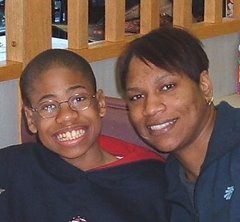The challenges autistic patients face become more pronounced during adolescence, when many kinds of social behaviours are developed these individuals can become more aware of their relationship difficulties.
"This study shows that the social and interpersonal skills of autistic adolescents can be improved, and we established that our method is efficient and does not require significant resources," said Dr. Fombonne, Head of Child Psychiatry at McGill University Health Centre.
They wanted to address the needs of autistic adolescents who had no major delay in their language development or who were not cognitively challenged (high-functioning autism and Asperger syndrome). The major component of the sessions is role play, which allows the patients to simulate different social situations and create new friendships with other members of the group.
The study results definitely back up this conclusion, as there was increase in patients' social skills over the course of the sessions, an improvement that was maintained outside the training groups. This last point proves that behaviour improvement in these patients is not solely tied to the hospital environment. The training has also helped some of the adolescents reduce problems with excessive irritability or sensitivity.
McGill University Health Centre (2007, November 3). Adolescence And Autism: A Difficult, But Not Hopeless Combination.
For more information on adolescence and autism visit: child-autism-parent-cafe.com
Forget what you haven't heard… Family site shares news, resources, announcements and free or low-cost ways to help us manage day-to-day living with autism.
Crystal Brown

About Me

- Crystal
- AutismConcepts.com and Child-Autism-Parent-Cafe.com share a large collection of useful autism information, resources, and how-to articles written by authors who are touched by autism, offering practical solutions to families. Particularly minority and underserved families and caregivers who may not know what to do or where to go for help.
